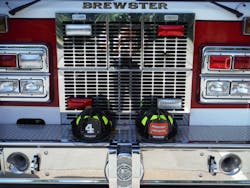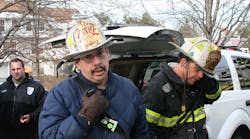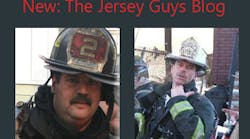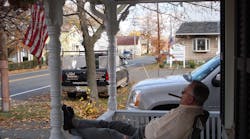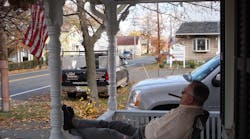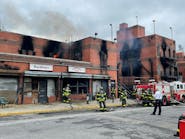Jersey Guys: The Keeper of Tradition
This blog entry was written by Robert Moran.
Having been in the fire service since I was 16 years old, I have always been sort of a quasi-traditionalist, always remembering the customs of our great profession but not afraid to search out new, proactive, and innovative ways to do business. As John and I wander around the country teaching at various conferences and fire departments many of the conversations we have involve how organizations and individual firefighters have forgotten the importance of the foundational concepts from which the fire service was built. Many times after these discussions I ponder the reasoning for our inability to maintain and support what should be the norm.
Is it the new generation of firefighters who are more interested in technology, immediacy, and their individual right to question officers and senior firefighters? Or is it the fire officer and senior member's own failure and apathy toward ensuring the next generation of officers and senior members are educated and prepared that has led us down this path? While I don’t have all the answers I am guessing that it is a mix of both.
When I moved to my current department in 2010 it became clear to me that it would be necessary to introduce some of the “old” fire service traditions I had become so accustomed to during my career to rejuvenate the organization. In a few short months I found small things that I had taken for granted like the color of turnout gear, the color of helmet shields, the use of silver piping, silver collar brass, and silver badges instead of gold to distinguish officers, developing mission statements and core values, and the introduction of the probationary firefighter shield as several simple customs that needed to be implemented as components in reshaping the organization. In my personal experience the implementation of these seemingly minor (to some) tradition-oriented details have turned out to be important factors in improving morale and setting the foundation for our department’s fire service revival. If your organization and your personnel are having trouble maintaining your commitment to these and other customs maybe it’s time to look in the mirror and restore the work of those who came before us.
A few weeks ago I had the pleasure of being the “keeper” of one of these traditions. As in most fire departments our personnel must complete a one year probationary period prior to becoming permanent members of either our call or career staffs. When that one year period is up we uphold the important and symbolic ritual of exchanging their orange probationary helmet insert for their group number which acknowledges their dedicated and successful effort to become a valued permanent member of our family. This is one of those few “fun” things fire chiefs get to do (trust me, I know) and it is particularly satisfying when you recognize the individual in question has truly applied themselves to the highest level possible and earned the right to proudly wear their company number.
In this particular case the firefighter who was taken off probation is a member of our call staff who has also been filling a full-time provisional spot for several months due to an extended injury to one of our career members. During an open and honest conversation between myself, the acting deputy chief, and the “probie” we spoke of how his dedicated work ethic, respect for others, customer service skills, maturity, and consistent efforts to improve his knowledge, skills, and abilities have exceeded the expectations of my office, his group captain, and his fellow employees. I also gave him the opportunity to voice his opinions and suggestions (he spoke, we listened, what a concept!) regarding the organization. I like what I heard, I like what I saw. It became apparent to me that over the past several months I have experienced the coming of age of a young firefighter who has excelled to the point of becoming a tremendous asset to his department by following the customary “old school” rules of the road and fire service traditions that this great profession has been built upon.
I see a future of maintaining our past even if it is one firefighter at a time. Are you willing to make that commitment?
